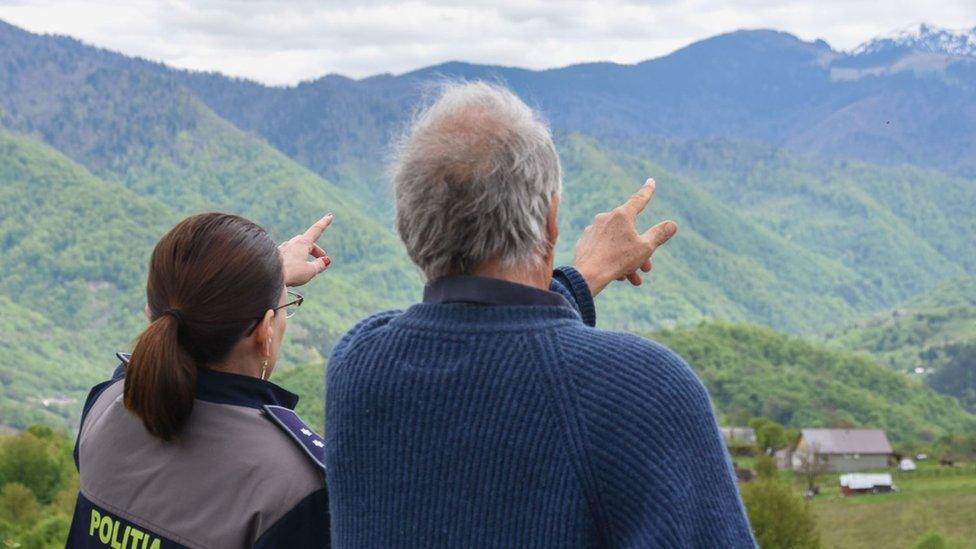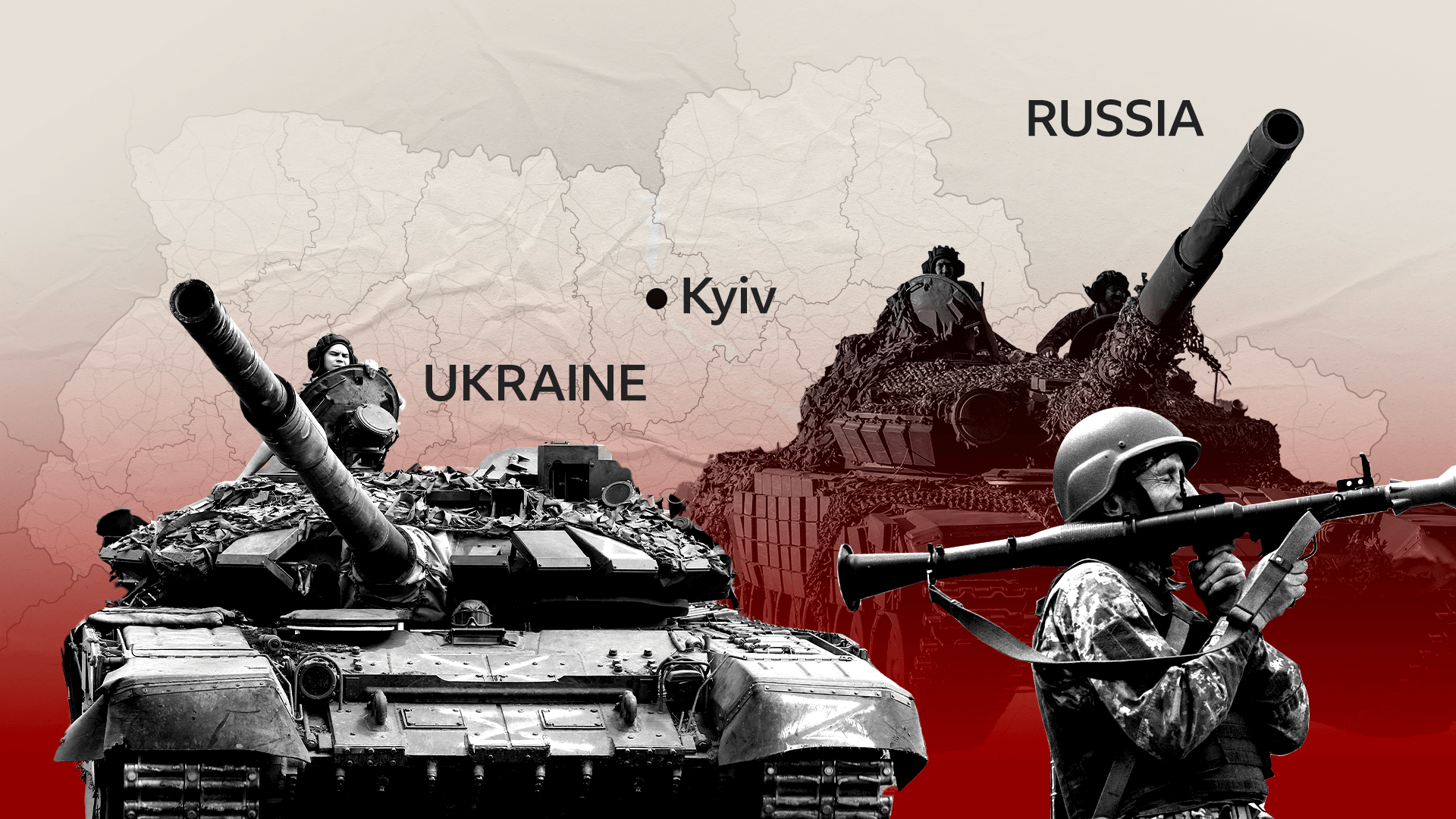Ukraine war: The men who don't want to fight
- Published
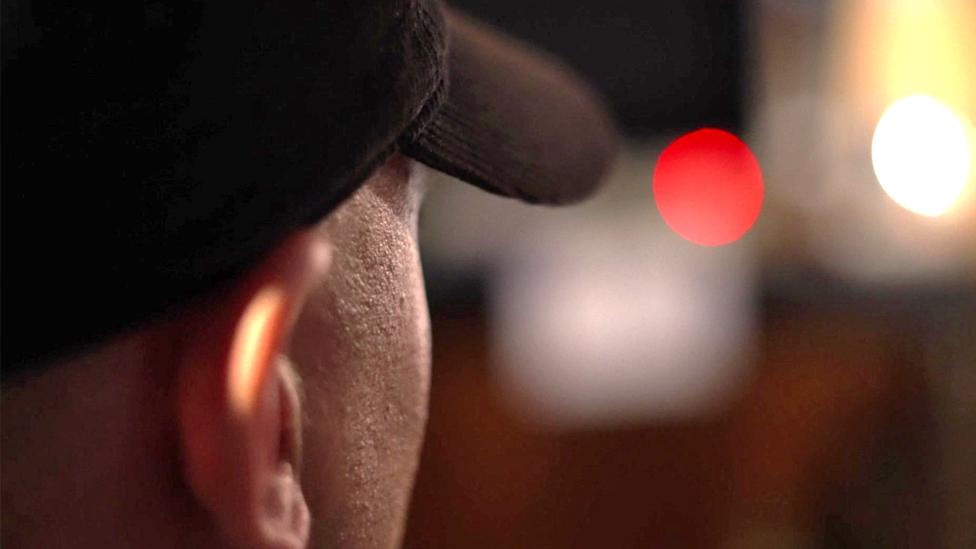
Yehor is keen to contribute to the war effort without taking up arms
Ukraine is struggling to meet its demand for soldiers.
Volunteers aren't enough. The country constantly needs to replace the tens of thousands who've been killed or injured. Many more are just exhausted, after 18 months fighting off Russia's full-scale invasion.
Some men though don't want to fight. Thousands have left the country, sometimes after bribing officials, and others are finding ways of dodging recruitment officers, who in turn have been accused of increasingly heavy-handed tactics.
"The system is very outdated," says Yehor. He watched his father suffer from mental health issues after fighting with the Soviet Army in Afghanistan.
It's why he doesn't want to fight. He's asked that we don't use his real name to protect his identity.
Typically, before Russia's invasion, men who didn't want to do military service because of their religious beliefs would be offered an alternative - like working in farming or social services.
That choice disappeared with the start of martial law last year, but Yehor thinks it should still be available, regardless of peoples' reasons.
"Each situation is individual," argues Yehor. "The fact it is written in the constitution that all male citizens must fight is, in my opinion, not in line with today's values."
He was recently sent to a recruitment centre after being stopped by police in Kyiv, who accused him of avoiding the draft. He was eventually allowed to go home, after pleading that he had back problems, but next time he fears he won't be.
There are exemptions from service, including having poor health, being a single parent, and caring for someone vulnerable. But those convicted of draft-dodging face fines, or even up to three years in prison.
"Everyone should be allowed to contribute to this war if their situations are taken into account," says Yehor. "I feel sorry for people who are on the front lines, yet I don't have a pacifist alternative."
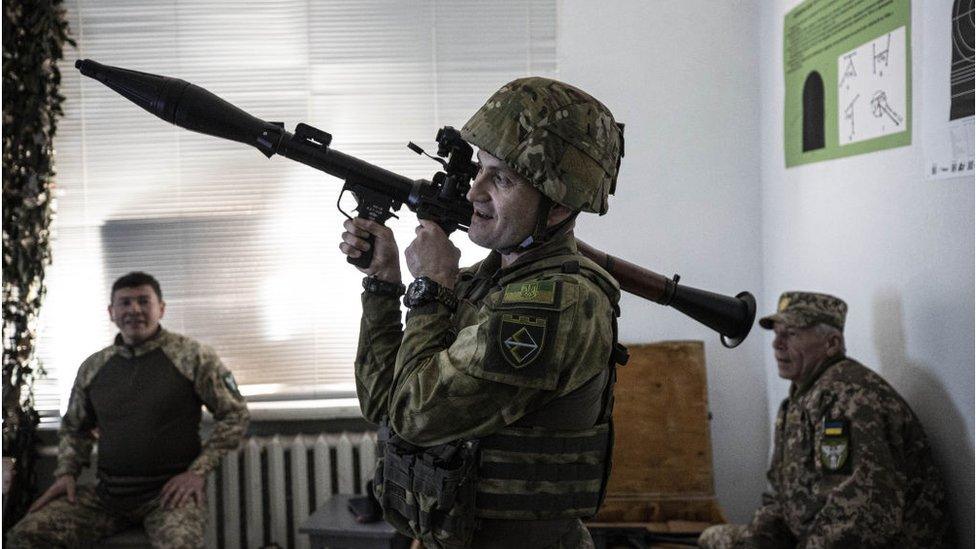
Many Ukrainians have volunteered to fight - but there is still a shortage
The way Kyiv conscripts men has been accused of being corrupt at its core.
President Volodymyr Zelensky has sacked every regional head of recruitment in Ukraine after widespread allegations against officers in the system, including bribe-taking and intimidation.
The family of one military draft chief in Odesa were even accused recently of buying cars and property on Spain's southern coast costing millions of dollars. The officer reportedly denies any knowledge of this, external.
Defence officials have told the BBC the alleged offences are "shameful and unacceptable".
Mobilisation is why most men under 60 can't leave Ukraine. Thousands often try to sneak out of the country, mostly across the Carpathian mountains to Romania.
For those who stay, mass group chats help them avoid being drafted. Telegram threads give tip-offs on where drafting officers are patrolling. There are chats for different regions and cities across the country, sometimes with more than 100,000 members each.
The officers in these groups are known as Olives, because of the colour of their uniforms. People they encounter are typically handed notices ordering them to register at a recruitment centre, but there are reports of some being taken away on the spot, without a chance to return home.
Ukraine's Defence Ministry urges people to keep their details updated on a national database, and says that if they are called up they'll be sent to a suitable posting.
But there are claims of officers using harsh or intimidating tactics. There are also reports of conscripts finding themselves on the front line with just a month of training.
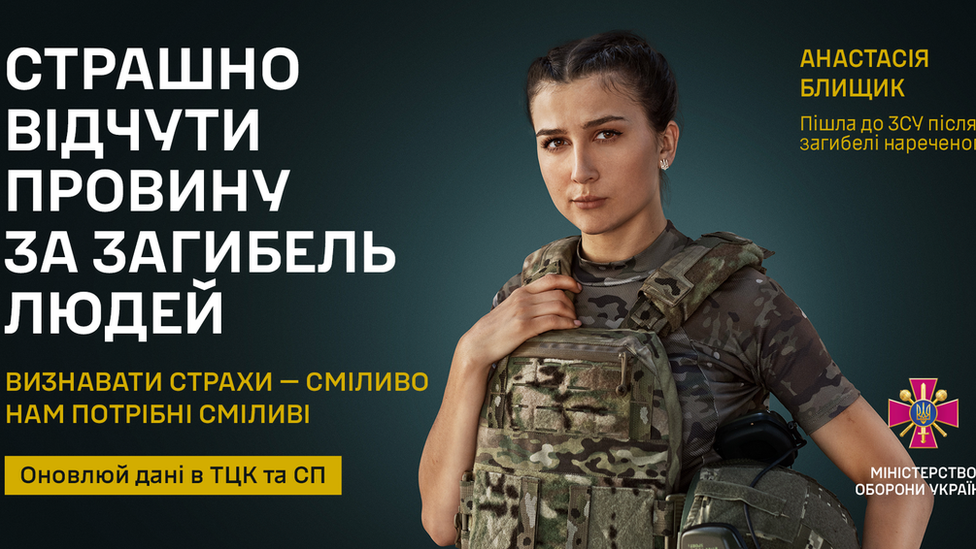
New Ukraine defence ministry adverts tell people: "It's brave to admit your fears"
The authorities do seem keen to restore confidence.
"It's OK to be afraid," is the slogan of their latest information campaign. It's an attempt to draw parallels between childhood fears and the worries of today.
In an abandoned summer camp in Kyiv, civilians are trained in resisting Russian soldiers, in case of need. They patrol the paths before an instructor shouts, "Second group! Grenade!" The men and women quickly fling themselves on the ground.
Their rifles are not real, but there's a hope some participants will sign up for the real thing. Anton, a 22-year-old student, has already made up his mind.
"When the war started, I wasn't ready to get drafted," he tells me during a break from rolling in the grass.
"Now I have to get prepared to go to war in the future."
Everyone is scared. But if the situation gets any worse, there's no way I'll be sitting here in Kyiv
Anton doesn't think it's good that people avoid the draft, but he understands why someone wouldn't want to fight.
I ask him if he's scared of the prospect.
"Of course," he replies, almost cutting me off. "Everyone is scared. But if the situation gets any worse, there's no way I'll be sitting here in Kyiv."
Ukraine has defied all expectations in its defence against Russia's full-scale invasion.
Moscow's focus has been forced to shift from taking the whole country to trying to hang on to a fifth of it.
But Ukraine is having to do its own recalibrations.
Not just with its own counteroffensive, which is bringing progress slower than many hoped, but also with how it motivates its citizens to fight.
There is an undeniable need, but also an uncomfortable truth, in the battlefield not being for everyone.
Additional reporting by Hanna Chornous, Anastasiia Levchenko, Kate Peevor and Hanna Tsyba
Related topics
- Published11 August 2023
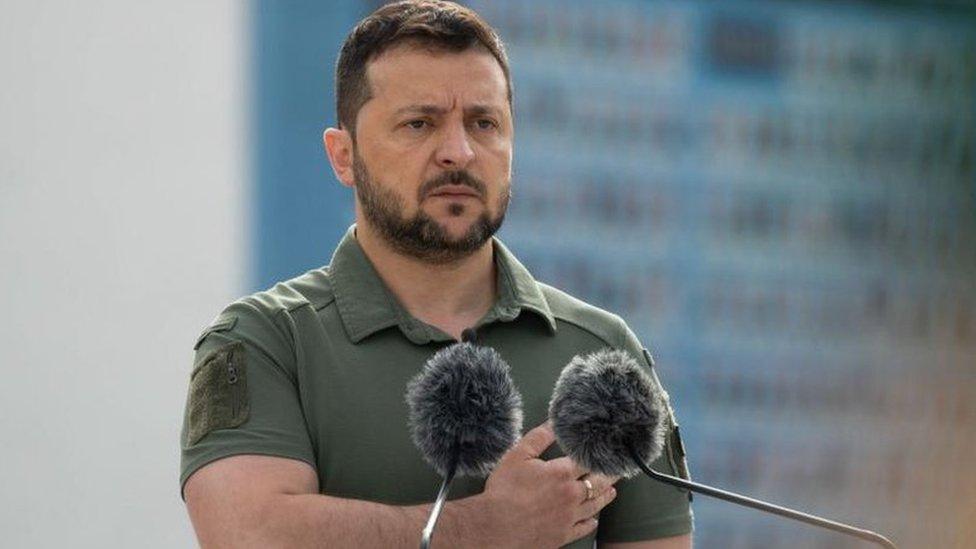
- Published8 June 2023
